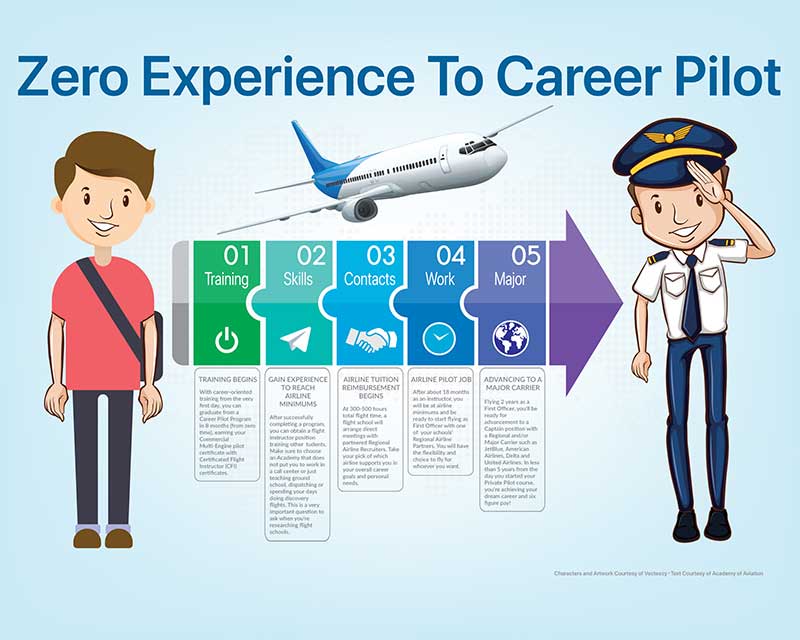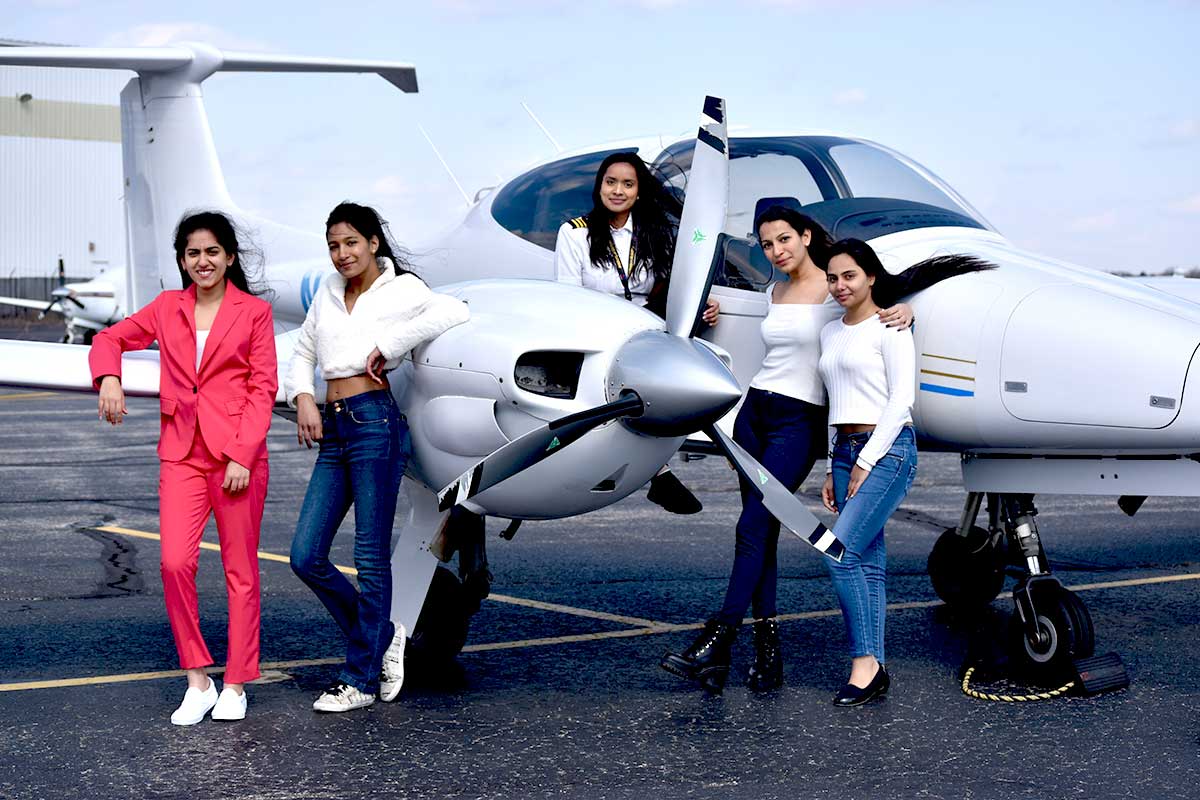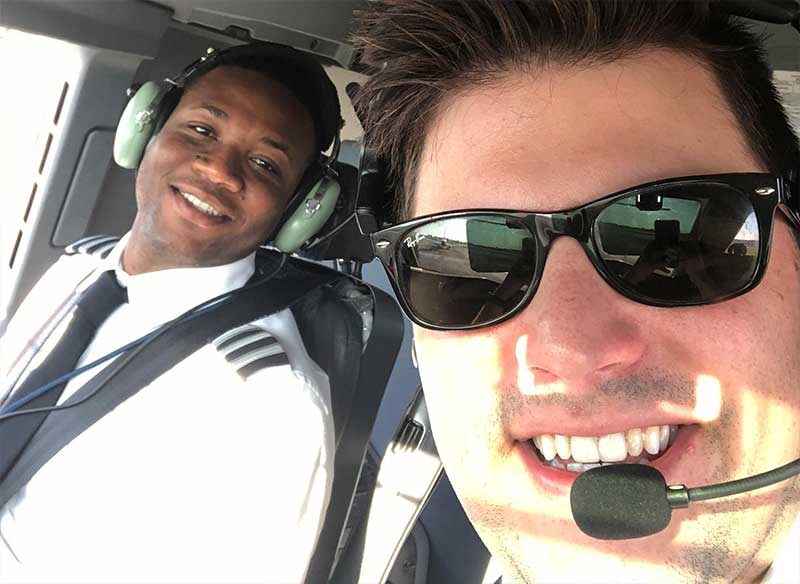Whether you want to transport thousands of people a week as a commercial pilot in a jumbo jet airliner or move just a few key business contacts in a multimillion-dollar private or corporate jet, you need to build your qualification requirements in order to propel yourself into a paid pilot's lifestyle.
In this mobile-first world, there is a widely analyzed need for pilots within every echelon of air travel that encompass many levels of personal economic gain. A career pilot can fly not only for the commercial airlines, but for regional carriers, charter companies, the emergency service industry, search and rescue and even local sightseeing and crop farming airplanes. Job posting sites like JSFirm and indeed display hundreds of pilot jobs, but the commonality is the need for professionally trained and commercially available advanced piloting skills.
Commercial Pilot Primer
What kind of pilot training do you need?
Earning your commercial pilot certificate is more than just taking flying lessons. You will need to pass your 2nd Class medical certificate which needs to be renewed every 12 months, and you will need to be fluent in English, the preferred language for international pilots. The age requirement to start your training is 18, and contrary to most popular beliefs, you do not need to have a college degree to become a commercial pilot. Take your FAA written exams as soon as you feel ready, and enter the cockpit with a Certified Flight Instructor to start flying.
The commercial pilot certificate course track is fairly specific, and every flight school will follow a similar curriculum. Not all flight schools are created equally, so you want to choose one that will satisfy your goals and help you achieve your dreams with a nice balance between cost-effective flight training time and quality training courses. Do your research, apply for loans if you are qualified, and most importantly, talk to your Admissions and Enrollment professionals at each school you are interested in, as many times there will be hidden costs and other complexities in educational programs not divulged on flight school websites.
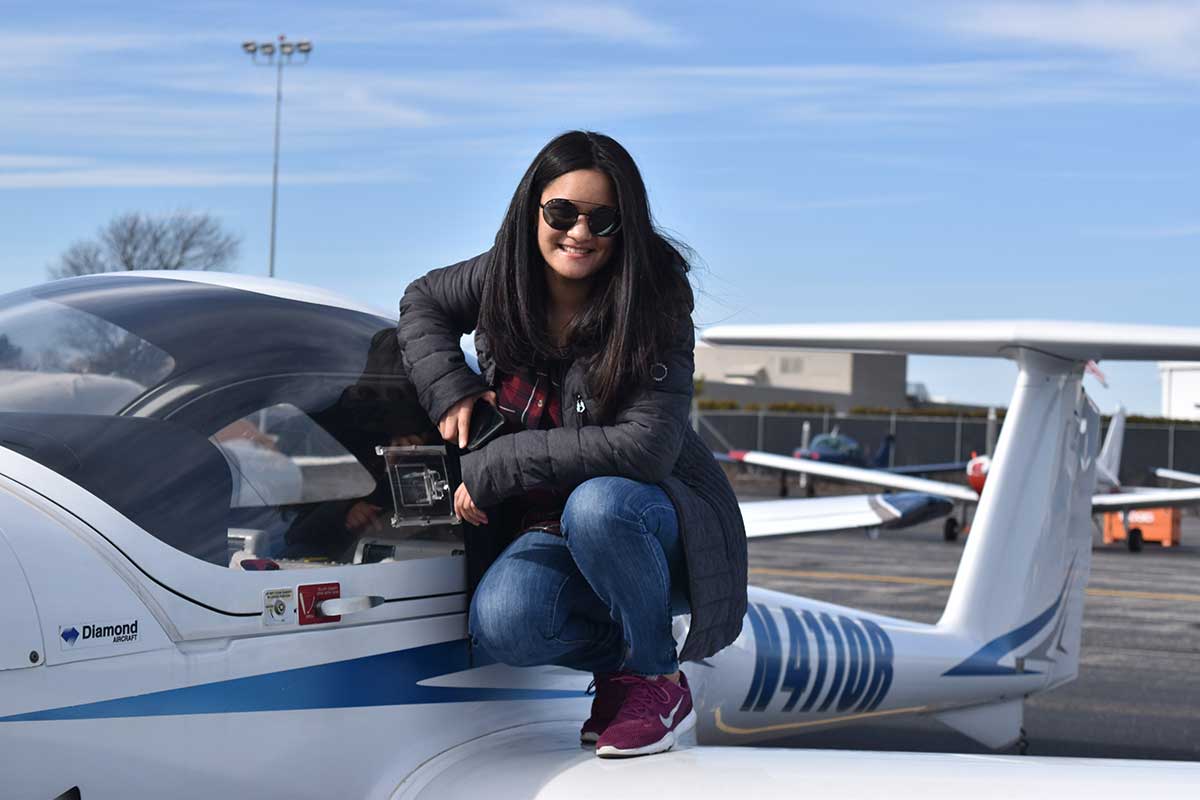
Commercial pilots always start out as private pilots. Learning the foundations of flying is done in single engine airplanes such as from Cessna and Diamond, with both conventional Instruments/six-pack and glass TAA (technically advanced aircraft) cockpits as popularized by the Garmin G1000 system, and moving up to multi engine and other advanced aircraft is essential to your learning track. Private pilot, instrument and multi engine training is done with a Certified Flight Instructor and you will have both classroom and in-the-sky study with either one or a small group of selected pilots.
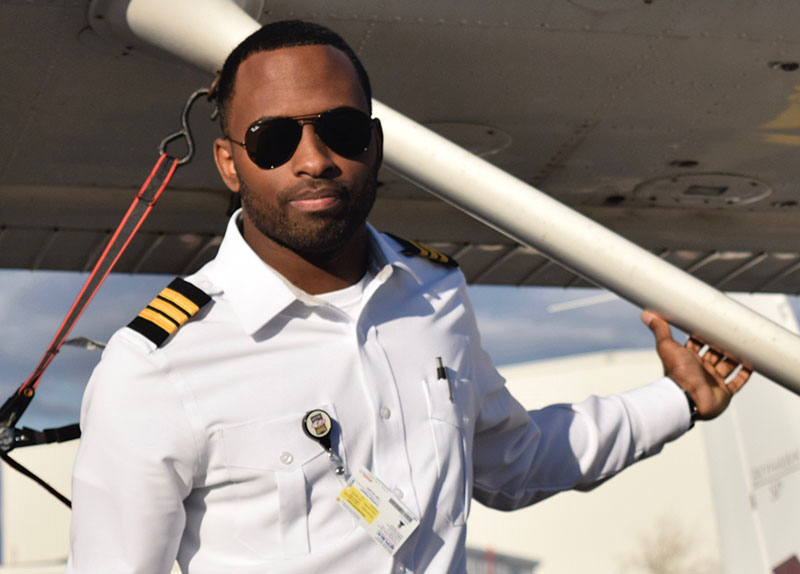
A prerequisite to becoming a commercial pilot is at least 250 hours as PIC (pilot in command) to earn your license. You will fly at night, in fog, preferably in rain and ice situations, perform spin training, and become an all-around perceptive and sensible pilot. Your mental state will be considered at all times, and you will be assessed on reaction and professionalism in every flying and non-flying situation.
Your physical proficiency and aeronautical ability will dictate your future as a commercial pilot. Moving from your Private Pilot Certificate through to your Instrument Rating, your Commercial Single Engine, Commercial Multi Engine and Certified Flight Instructor, your Certified Flight Instructor Instrument and Certified Flight Instructor Multi Engine ratings will ensure you have the most complete experience in training and maximize your success as a commercial pilot.
Commercial Pilot Costs
How much does flight training cost and can I get a loan?
Learning to fly is never going to be cheap, and while you really have to shop around to find the best cost to training ratio that works for you, you have to also do your due diligence to choose a school that does not place money over lives. Going "cheap" on your training can actually cost you more in the long run, as you may find yourself undertrained and unprepared for a job flying human lives.
If you are serious about your training, talk to an Admissions and Enrollment Specialist at every school you'd like to check out. Is your program truly fixed cost or are there other factors that will result in you paying more than quoted? Again, ask your Admissions and Enrollment Specialist and learn about exactly what you are signing when you enroll.
Be sure to look at all financial options – including grants, scholarships and family loans. Alternatively, you may be eligible for full financial aid for your flight training, and you can ask your Admissions and Enrollment Specialist about those as well.
